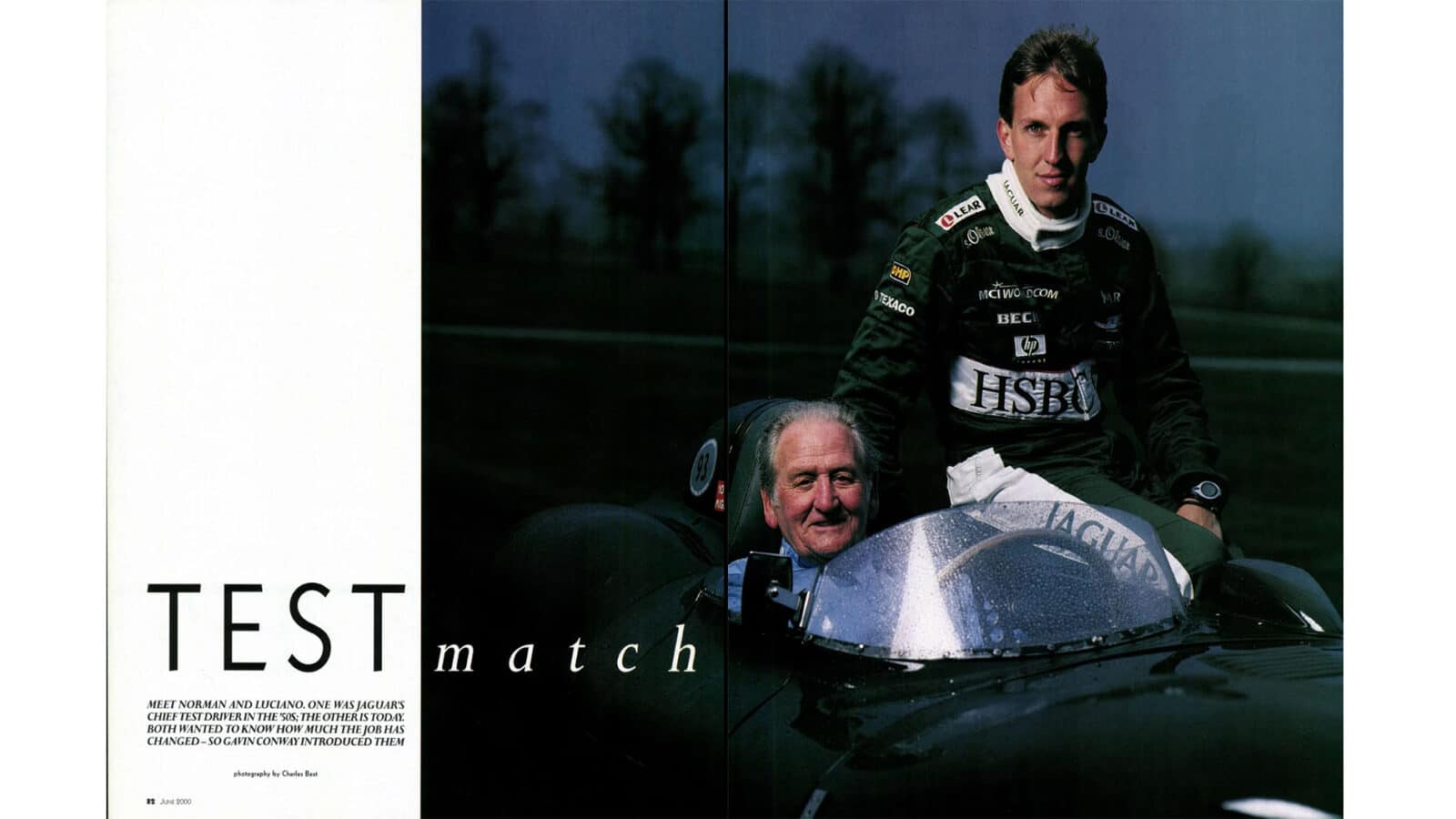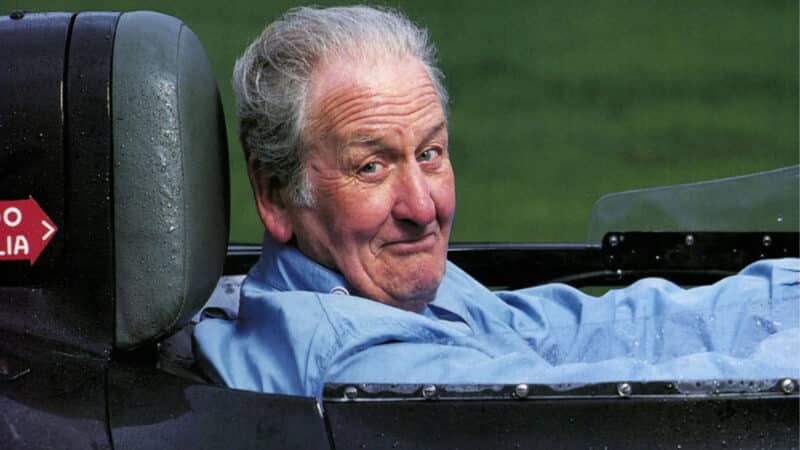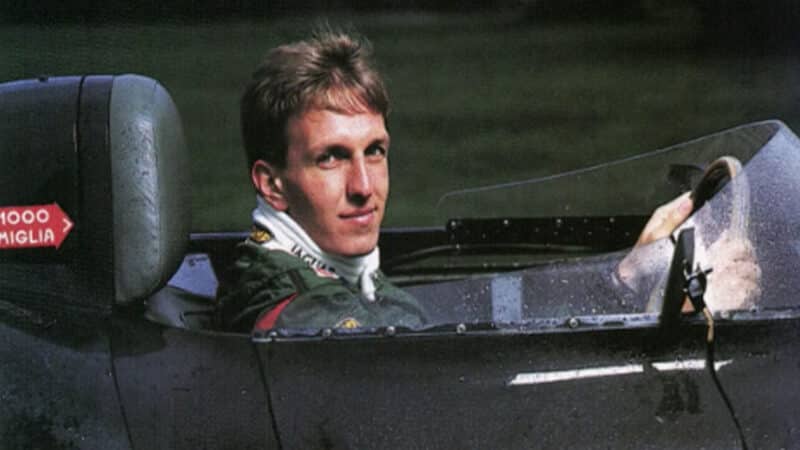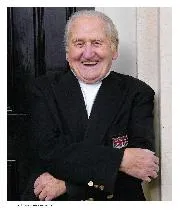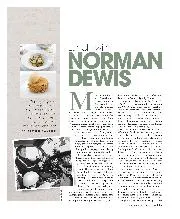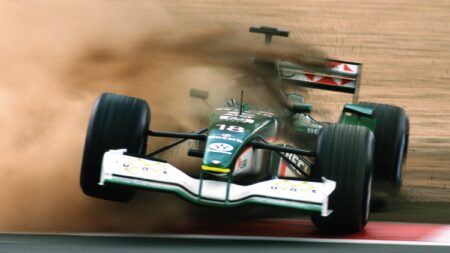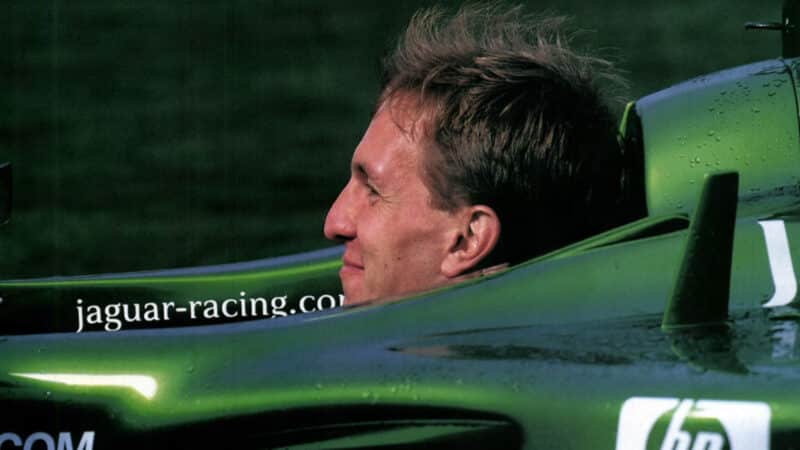Then Norman talks of lap times, of being faster than the others. And as he does, Luciano leans in close, interested, a little less distracted by the noise outside. “If a team driver wasn’t doing well, they tended to blame the car,” says Norman. “If that was happening, Lofty England would say ‘Norman, put your gear on and get out there’ and I’d go out and my lap times would come straight down. I’d come in and tell Lofty the car was fine and he’d tell the driver ‘go out and get some good lap times or Norman will get your seat.’”
Luciano is smiling a bit wistfully at the notion. “My job on a grand prix weekend is to help on the PR side, to be involved with the drivers and engineers,” says Luciano. “That’s so I know what’s going on for the next time I go testing. Obviously, there is no way that I would have a chance to step in for another driver if something happens on the race weekend. That won’t ever happen. There are politics.” And the testing. Norman outlines a typical day, lapping MIRA at 130 or 140mph. Five hundred miles, often seven days a week. “In my day, everything had to be recorded by the driver,” says Norman. “You’d have to memorise so many things at a time, so you might do 20 laps at 140mph, come in and a guy would say ‘gearbox temperature’ and you’d tell him; ‘water temperature’ and so on. If there was a problem with any of the numbers, a change would be made and you’d go out again.”
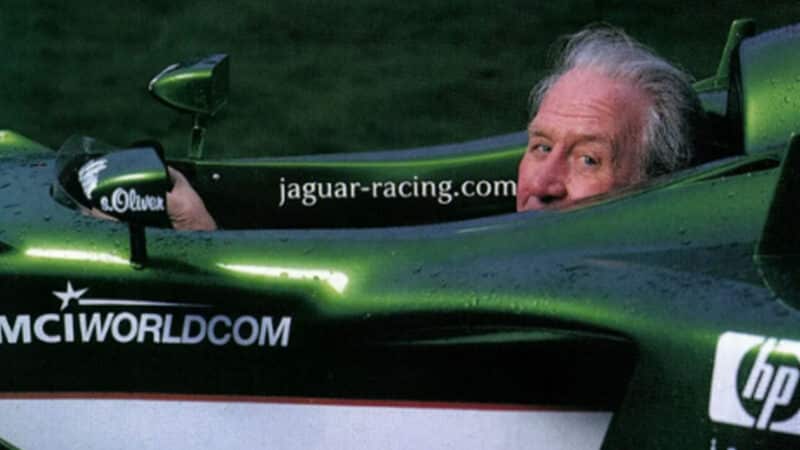
Dewis finds the 2000 Jaguar a spacious fit
Charles Best
Luciano shakes his head, laughs. “So Norman would do in one day the same miles we do in three,” he says. “Today, you do a run, stop in the garage and they have so much data to check. And now they have these tyre warmers, you don’t even need to do laps to warm the tyres. Sometimes you do just one lap and they know already what’s going on. All of that other stuff Norman was talking about, they look at in the pits, get the data straight away. We have maybe ten per cent of the work guys like Norman had.” A reflective chuckle. “If there is a problem, they tell me about it on the radio.”
But the Brazilian still reckons his job is more pressured, less forgiving than Norman’s. “Sometimes you think ‘what am I doing here’ the pressure is so much,” explains Luciano. “When there is so much money spent, so much technology, so much effort you have a lot more pressure than back then. When I was karting, I raced more for myself. Now, I race for sponsors and team, and, in that way, I enjoy it less than when I was racing non-professionally. Maybe in the old days they enjoyed it more because they were racing for themselves.”
